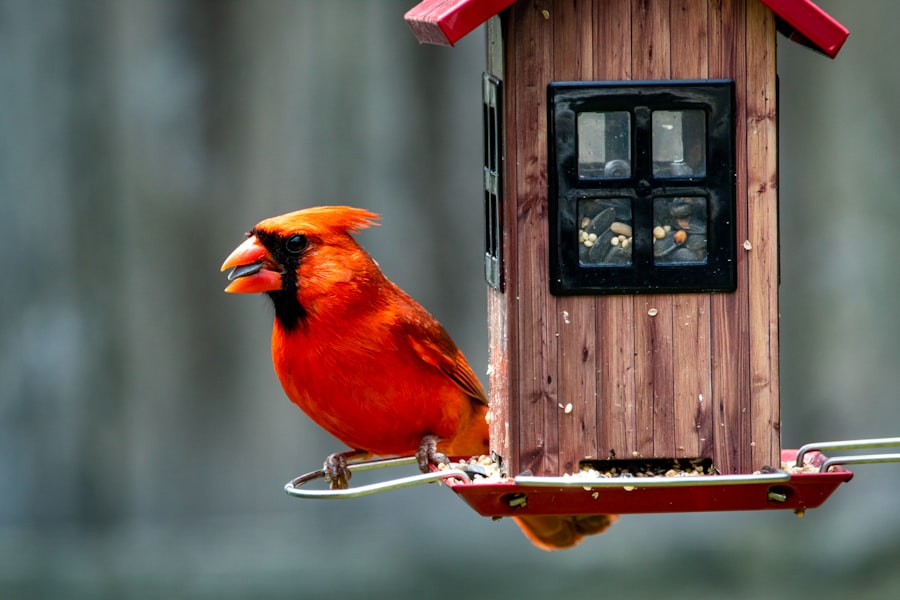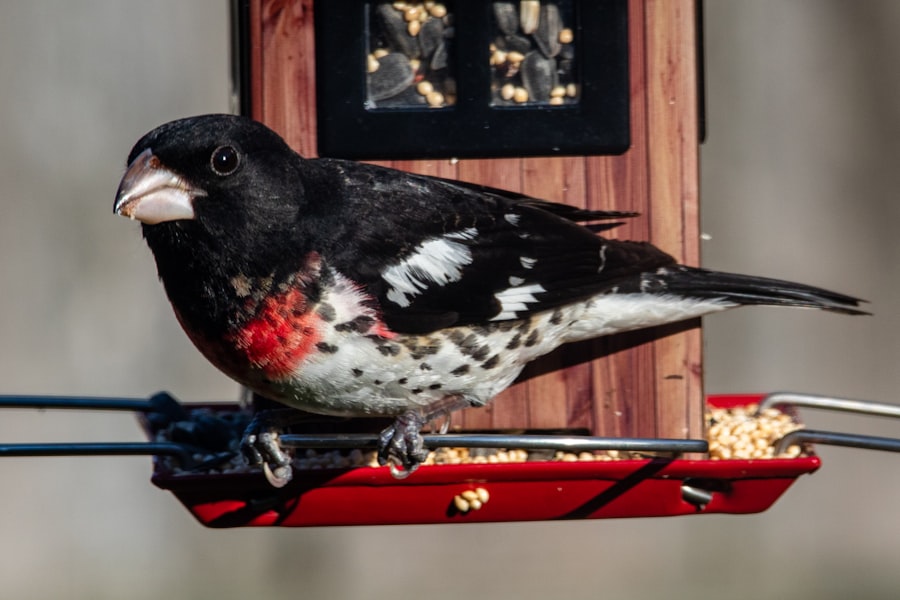When starting a chicken flock, it is crucial to first identify your objectives. Determine whether you want to raise chickens for eggs, meat, or both. Consider if you have a specific breed preference or are open to various options.
Understanding these factors will guide your decisions on flock size and type that best align with your goals. For egg production, focus on breeds known for high egg-laying capacity. If meat production is the primary goal, select breeds recognized for meat quality and growth rate.
Limited space or resources may necessitate adjusting expectations and choosing a smaller flock or low-maintenance breeds. Experience level and commitment are important considerations. Chicken-raising requires time, effort, and knowledge.
Beginners may benefit from starting with a smaller flock and expanding gradually as they gain experience. Those with prior poultry experience or willingness to invest in learning may be able to manage a larger flock initially. By carefully assessing needs and goals, individuals can make informed decisions that contribute to successful chicken-keeping endeavors.
Table of Contents
Key Takeaways
- Understanding your needs and goals is crucial before starting a poultry flock, whether it’s for personal consumption or commercial purposes.
- Calculating space and resources accurately is essential to ensure the well-being and productivity of your poultry flock.
- Considering the breed and purpose of your poultry flock will help you choose the right birds for your specific needs and goals.
- Factoring in egg production is important if you are raising poultry for eggs, as different breeds have varying egg-laying capabilities.
- Managing flock dynamics is key to maintaining a harmonious and productive poultry flock, so understanding pecking order and social behaviors is important.
- Planning for potential losses, such as predators or disease, is necessary to minimize risks and protect your poultry flock.
- Seeking professional advice from veterinarians, poultry experts, or experienced farmers can provide valuable insights and guidance for successfully managing your poultry flock.
Calculating space and resources
Assessing Space Requirements
The amount of space needed for your chicken flock will depend on the size of your flock and the type of housing and outdoor area you plan to provide. Chickens require adequate space to move around, forage, and engage in natural behaviors, so it’s important to ensure that they have enough room to thrive.
Planning for Resources
In addition to space, you’ll need to consider the resources required to care for your flock, including feed, water, bedding, and medical supplies. It’s important to budget for these resources and ensure that you have a plan in place for sourcing them on an ongoing basis.
Infrastructure and Environmental Considerations
The infrastructure needed to support your flock may include a coop or housing structure, fencing or other means of predator protection, and access to fresh water and feed. You’ll also need to consider factors such as ventilation, lighting, and waste management to ensure that your flock has a healthy and comfortable living environment.
By carefully calculating the space and resources required for your chicken flock, you can ensure that you have everything in place to provide for their needs and support their well-being.
Considering the breed and purpose

When it comes to starting a chicken flock, one of the most important decisions you’ll need to make is choosing the right breed for your purposes. Different chicken breeds are known for their unique characteristics and qualities, so it’s important to consider the breed and purpose of your flock carefully. If you’re primarily interested in egg production, you may want to consider breeds such as Leghorns, Rhode Island Reds, or Sussex, which are known for their high egg-laying capabilities.
On the other hand, if you’re looking to raise chickens for meat, you may want to consider breeds such as Cornish Cross or Freedom Rangers, which are known for their meat quality and growth rate. In addition to considering the breed’s primary purpose, it’s also important to think about other factors such as temperament, climate adaptability, and special considerations. Some breeds may be more docile and friendly, making them suitable for family pets or educational purposes, while others may be more independent and suited for free-range environments.
Additionally, some breeds may be better adapted to specific climates or environmental conditions, so it’s important to choose a breed that will thrive in your particular location. By carefully considering the breed and purpose of your flock, you can ensure that you choose the right chickens for your specific needs and goals.
Factoring in egg production
If egg production is a primary goal for your chicken flock, it’s important to factor in the considerations specific to this purpose. Egg production can be influenced by a variety of factors, including breed selection, nutrition, housing conditions, and management practices. When choosing breeds for egg production, it’s important to select those known for their high egg-laying capabilities.
Additionally, providing a balanced diet with adequate nutrition is essential for supporting optimal egg production. This may include providing a commercial layer feed or formulating a custom feed ration that meets the nutritional needs of laying hens. Furthermore, housing conditions can also impact egg production.
Providing a clean, comfortable, and well-ventilated coop with access to nesting boxes can encourage hens to lay eggs regularly. Additionally, managing factors such as lighting and temperature can also influence egg production. For example, providing supplemental lighting during the winter months can help maintain consistent egg production when natural daylight is limited.
By factoring in these considerations specific to egg production, you can optimize the conditions for your flock and support their ability to lay eggs consistently.
Managing flock dynamics
When raising a chicken flock, it’s important to be mindful of flock dynamics and social interactions among the birds. Chickens are social animals that establish a pecking order within the flock, which can influence their behavior and well-being. It’s important to be aware of potential issues such as aggression, bullying, or stress within the flock and take steps to manage these dynamics effectively.
Providing adequate space, enrichment activities, and multiple feeding and watering stations can help reduce competition and minimize conflicts within the flock. Additionally, introducing new birds or integrating different age groups into the flock can also impact flock dynamics. It’s important to carefully manage introductions and transitions to minimize stress and ensure a smooth integration process.
Monitoring the behavior of individual birds and observing interactions within the flock can help identify any potential issues early on and take proactive measures to address them. By actively managing flock dynamics and promoting positive social interactions among the birds, you can create a harmonious living environment for your flock.
Planning for potential losses

Minimizing Risks and Preventing Losses
Raising a chicken flock comes with inherent risks, including predation, disease, accidents, and natural disasters. To mitigate these risks, it’s crucial to implement measures such as predator-proofing coops and outdoor areas, practicing biosecurity protocols, and providing regular health checks. By taking these precautions, you can minimize the risk of disease or predation and protect your flock.
Emergency Preparedness and Contingency Planning
In addition to preventative measures, having a contingency plan in place for emergency situations such as extreme weather events or accidents can help mitigate potential losses. This plan should outline steps to take in the event of an emergency, ensuring you’re prepared to respond quickly and effectively.
Coping with Emotional Impact
It’s essential to consider the emotional impact of potential losses on both yourself and your flock. Losing chickens can be distressing, so developing coping strategies and seeking support from fellow chicken keepers or professionals can help navigate difficult situations with resilience and compassion.
By planning for potential losses and being prepared to manage them effectively, you can better protect the well-being of your flock and yourself as a chicken keeper.
Seeking professional advice
Finally, seeking professional advice can be invaluable when starting a chicken flock. Whether it’s consulting with experienced chicken keepers, veterinarians, or agricultural extension agents, professional advice can provide valuable insights and guidance on various aspects of chicken keeping. Professionals can offer expertise on topics such as breed selection, nutrition, health care, housing design, and management practices.
Additionally, they can provide support in identifying potential issues early on and implementing effective solutions. Furthermore, professional advice can also help ensure that you are meeting legal requirements and best practices for animal welfare and biosecurity. Professionals can offer guidance on regulations related to chicken keeping in your area and help you navigate any necessary permits or certifications.
By seeking professional advice from knowledgeable individuals or organizations within the poultry industry, you can gain confidence in your decisions and set yourself up for success in raising a healthy and thriving chicken flock. In conclusion, starting a chicken flock involves careful consideration of various factors such as needs and goals, space and resources, breed selection, egg production considerations, flock dynamics management, potential loss planning, and seeking professional advice. By taking a thoughtful approach to these aspects of chicken keeping, you can create an environment that supports the well-being of your flock while aligning with your specific needs and goals as a chicken keeper.
Whether you’re new to raising chickens or have previous experience with poultry, being mindful of these considerations can help set you up for success in your chicken-keeping venture.
If you’re wondering how many chickens you need to keep, you may also be interested in learning about the importance of a chicken coop nest box. Check out this article to find out more about creating a comfortable and functional nesting space for your chickens.
FAQs
How many chickens do I need to keep for eggs?
The number of chickens you need to keep for eggs depends on your household’s egg consumption. On average, a single chicken can lay about 250-300 eggs per year. So, if you consume 4-6 eggs per week, you may need 3-4 chickens to meet your needs.
How many chickens do I need to keep for meat?
If you are raising chickens for meat, the number of chickens you need to keep will depend on your family’s meat consumption. On average, a single chicken can provide about 4-6 pounds of meat. So, if you consume 2-3 pounds of chicken per week, you may need 2-3 chickens for meat.
How much space do I need to keep chickens?
Chickens need at least 2-3 square feet of space per bird inside the coop, and at least 8-10 square feet of space per bird in an outdoor run. It’s important to provide enough space for the chickens to move around comfortably and engage in natural behaviors.
What are the benefits of keeping chickens?
Keeping chickens can provide a sustainable source of fresh eggs, meat, and fertilizer. Chickens also help control pests in the garden, and their droppings can be used to enrich the soil. Additionally, many people find joy and relaxation in caring for chickens as pets.
What are the basic requirements for keeping chickens?
Basic requirements for keeping chickens include a secure coop and outdoor run, access to fresh water and balanced feed, protection from predators, and regular health checks. It’s also important to check local regulations and obtain any necessary permits for keeping chickens.
Meet Walter, the feathered-friend fanatic of Florida! Nestled in the sunshine state, Walter struts through life with his feathered companions, clucking his way to happiness. With a coop that’s fancier than a five-star hotel, he’s the Don Juan of the chicken world. When he’s not teaching his hens to do the cha-cha, you’ll find him in a heated debate with his prized rooster, Sir Clucks-a-Lot. Walter’s poultry passion is no yolk; he’s the sunny-side-up guy you never knew you needed in your flock of friends!







